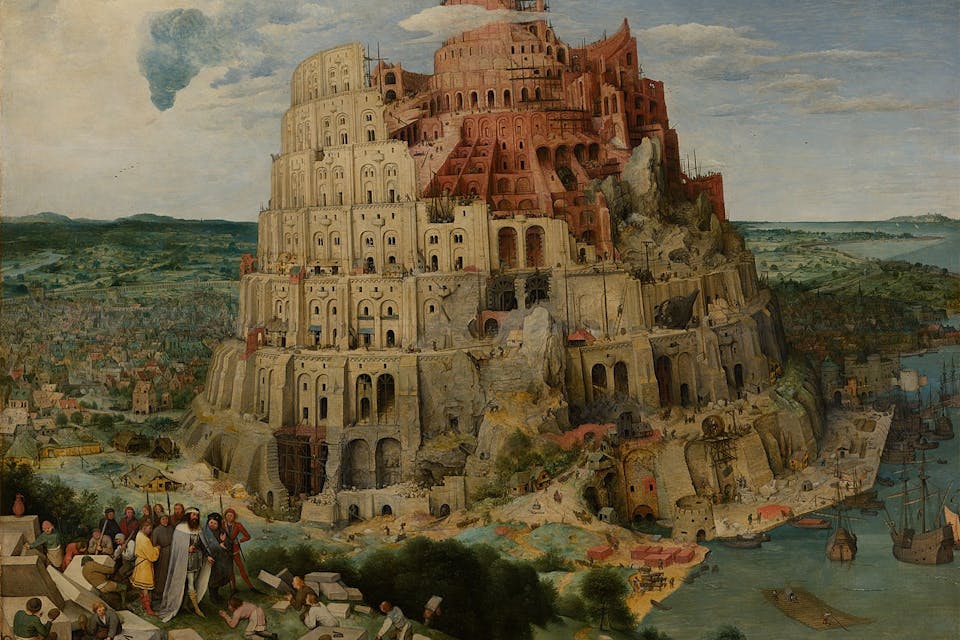
April 13, 2022
Homeric and Biblical Nobodies
Why, in the Hebrew Bible and the Odyssey alike, does the overweening human ambition to become somebody end in lowly banishment and dispersion?
This essay is the fourth in a six-part series by Jacob Howland on Homer and the Hebrew Bible. Historians of Western intellectual culture sometimes compare “Jerusalem,” or the biblical traditions that erupt into history at Sinai, with “Athens,” the city where Socrates, Plato, and Aristotle sought human wisdom through the exercise of the human mind. In this series, Howland invites a different comparison. Rather than comparing later prophets to philosophers, he looks back at yet earlier cultural cornerstones set at the very foundations of Hebraic and Greek civilizations. Future installments in Howland’s series will arrive monthly. —The Editors
The Noahide portion of Genesis, containing the final episodes in the Bible’s universal history before the advent of the Hebrew patriarchs, opens with one big construction project—the ark—and closes with an even bigger one—the city and tower of Babel.
The first story involves the near-total destruction of human and animal life with the single exception of Noah’s boatload of survivors. The second develops similar themes of displacement and dispersion, but in a different register: in a vivid image of total social uniformity, the mobilized citizens of Babel fire, stack, and join bricks row upon row in high walls. But God baffles the language of this anonymous mass and scatters it—them—“over all the earth.” Thus, once again, 2,000 years after the expulsion from Eden, a few centuries after the flood, human beings will have to begin anew to find their way in the world.